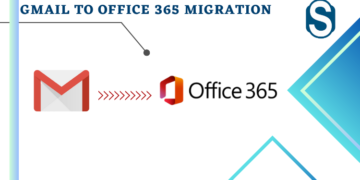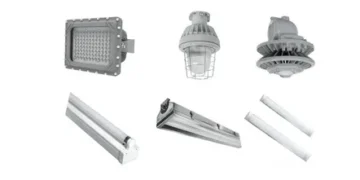In the fast-paced world of finance and commerce, credit plays a crucial role in facilitating growth. Whether it’s a personal loan, business credit, or corporate borrowing, lending is a pillar of economic activity. However, when borrowers default, lenders—both individuals and financial institutions—face challenges in recovering dues. That’s where Debt Recovery Services and experienced Debt Recovery Lawyers come into play, ensuring that legal rights are protected and funds are recovered in a structured manner.
What are Debt Recovery Services?
Debt Recovery Services refer to professional solutions offered to recover outstanding debts legally and ethically. In India, such services are governed by various laws including the Recovery of Debts and Bankruptcy Act, 1993, Insolvency and Bankruptcy Code, 2016, and provisions of the Indian Contract Act, 1872. Recovery agencies, NBFCs, and even banks often rely on specialized third-party services or legal professionals to manage overdue accounts efficiently.
These services include:
- Assessing the legitimacy of the debt
- Sending legal notices
- Initiating negotiation or settlement discussions
- Filing recovery suits in civil courts or Debt Recovery Tribunals (DRTs)
- Enforcement of court or tribunal orders
Debt recovery is not limited to just litigation. Many times, skilled negotiation, mediation, or arbitration can yield better outcomes without long-drawn court battles.
Who is a Debt Recovery Lawyer?
A Debt Recovery Lawyer is a legal professional who specializes in recovering money owed under contracts, promissory notes, or financial instruments. They represent clients in legal proceedings, draft recovery notices, negotiate settlements, and ensure adherence to due process.
In India, where legal systems are often slow and procedural, having a well-versed lawyer who understands the nuances of recovery law can be the difference between partial and full recovery—or none at all. These lawyers work for banks, private companies, startups, lenders, or even individuals struggling to retrieve their rightful dues.
Legal Framework for Debt Recovery in India
India has a comprehensive legal mechanism for debt enforcement. Here are some important legal routes that a Debt Recovery Lawyer may advise depending on the case:
- Civil Suits under CPC (Civil Procedure Code), 1908
For smaller debts or when no specific financial institution is involved, civil suits can be filed for recovery under the CPC. It’s common for lawyers to initiate these suits in district courts or High Courts, depending on the amount in question. - SARFAESI Act, 2002
Banks and financial institutions can recover non-performing assets (NPAs) without court intervention by enforcing security interests. Debt Recovery Lawyers are instrumental in issuing notices under Section 13(2) and taking possession under Section 13(4) of this Act. - Recovery of Debts and Bankruptcy Act, 1993 (RDDBFI Act)
For debts exceeding ₹20 lakhs, financial institutions can approach Debt Recovery Tribunals (DRTs). A Debt Recovery Lawyer files original applications (OA) on behalf of lenders and represents them throughout the tribunal process. - Insolvency and Bankruptcy Code, 2016 (IBC)
If the borrower is a corporate entity, initiating insolvency proceedings under IBC might be the fastest route. A skilled lawyer can file a petition under Section 7 or Section 9 of the IBC and push for a resolution plan or liquidation. - Negotiated Settlements & Arbitration
Not every case demands litigation. Many lenders prefer arbitration clauses in contracts. A Debt Recovery Lawyer may advise arbitration or mediation as a time-saving and cost-effective route.
Why Legal Expertise Matters in Recovery
Debt recovery is not just about sending demand notices—it involves understanding contractual obligations, timelines, documentation, limitation periods, and strategic negotiation. A good Debt Recovery Lawyer is not aggressive alone but also tactful, ensuring the client recovers money without breaching ethical or legal standards.
In India, aggressive or unlawful recovery practices are penalized. RBI guidelines prohibit harassment, threats, or coercion by recovery agents. Hence, legal advice is not just helpful—it’s essential to avoid legal repercussions while recovering dues.
Choosing the Right Debt Recovery Lawyer
When choosing a lawyer for debt recovery, it’s important to look for:
- Specialization: Ensure they have experience with DRT, civil recovery suits, and corporate law.
- Track Record: Past case results speak volumes about their capabilities.
- Negotiation Skills: A majority of cases are resolved outside court—strong negotiation skills are invaluable.
- Understanding of RBI and SEBI Regulations: For NBFCs and listed companies, compliance with financial regulators is critical.
Whether you are a small business owner trying to recover payments from clients or a bank dealing with major loan defaulters, having a competent legal representative can help avoid unnecessary litigation delays.
Common Challenges in Debt Recovery
Debt recovery in India is not without its hurdles:
- Delays due to overloaded judicial system
- Non-traceable or absconding debtors
- Insufficient documentation or flawed contracts
- Counter litigation or false claims by debtors
These challenges further highlight the importance of structured Debt Recovery Services led by qualified professionals.
Conclusion
In a credit-driven economy like India, ensuring timely recovery of debts is essential to maintain financial health. Debt recovery is no longer just a legal concern—it’s a financial strategy. With rising NPAs and complex borrower profiles, expert legal intervention is the need of the hour. Whether through litigation, arbitration, or negotiation, the role of a skilled Debt Recovery Lawyer is central in securing what’s lawfully yours.


























